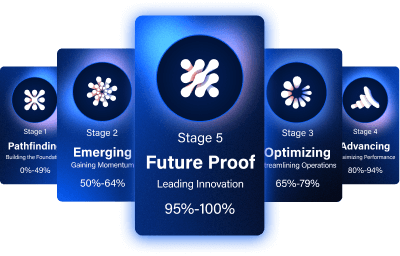When it comes to tax codes, we know it can be hard to keep up with all the changes and how it might impact you and your firm’s clients. In this blog post, we review the changes to Section 174 expenses of the U.S. Tax Code.
Section 174 of the US Tax Code applies to the treatment of research and experimental (R&E) expenditures. Section 174 expenses and amortization became part of the Internal Revenue Code in 1954. Historically, Section 174 has allowed for the deduction or amortization of direct and indirect costs for R&E activities.
The IRS made significant changes to the amortization of Section 174 expenses in 2022. IRS document Rev. Proc. 2023-11, which updates Rev. Proc. 2023-08, provides procedural guidance.
Recent changes to amortization of Section 174 expenses
Taxpayers who have Section 174 expenses for R&E or software development costs must now amortize the costs over five years. They can no longer deduct the costs in the year or period in which they were incurred.
The change came as part of the Tax Cuts and Jobs Act (TCJA) of 2017. The new rules require the amortization of R&E expenditures paid or incurred for any tax year that begins after December 31, 2021. This means Section 174 now requires taxpayers to amortize R&E expenditures over a period of five years for domestic research costs. For foreign research costs, the time period is 15 years. The TCJA also clarified that all software development costs are now Section 174 expenses and must be amortized.
Taxpayers are required to amortize costs falling under broader definitions of research whether or not they claim the Research & Development (R&D) tax credit. Compliance with Section 174 is completely separate from Section 41 (R&D tax credit). However, claiming the R&D tax credit could potentially offset some of the tax resulting from the amortization of Section 174 expenses.
Software developers and Section 174 expenses
The changes to Section 174 have a significant effect on software developers. Specifically, any cost paid or incurred related to software development is now a Section 174 R&E expenditure. Therefore, developers must capitalize and amortize the expense over five years, or 15 years for foreign software development.
What are Section 174 expenses or R&E expenses?
Section 174 expenses can include:
- Direct costs, including Section 41 costs
- Occupancy costs, including office rent and research facility costs
- Equipment rental costs
- Heat, light and telephone bills, and similar overhead utility costs
- Depreciation
- Travel expenditures incurred for R&E purposes
- Dues and publication expenses that incurred for R&E purposes
- Attorney fees or filing fees related to patents
Expenditures can include gross salaries and some general payroll costs. They can also include expenses for heating, lighting, power, office supplies, laboratory materials and software licensing. However, guidance on potential Section 174 expenses is still vague.
Taxpayers need to work with tax professionals who are familiar with Section 174 and up to date with the current laws. Tax professionals can help taxpayers identify potential cost centers and departments where Section 174 expenditures could apply.
What impact will the new rules on Section 174 expenses have?
Section 174 no longer allows taxpayers to fully deduct their R&E expenses in the current tax year. That change will ultimately impact cash flow.
For example, let’s say a taxpayer incurs Section 174 expenses totaling $1 million that fall in the 2022 tax year. Due to the five-year amortization with the half-year convention, the current-year deduction would be $100k. This would create a 90% reduction of the original $1 million expense deduction. The taxpayer would realize an increase in taxable income of $900,000. Again, foreign research costs require a 15-year amortization and will have an even bigger impact.
Filing tax returns with Section 174 expenses
The IRS is still finalizing guidance for Section 174, so taxpayers need to be prepared to understand the impact of changes when making tax payments or filing for extensions. Taxpayers who are considering delaying their tax filing still need to know the extent of their potential tax change with Section 174. They will need time to properly compute any R&D tax credits to help offset the additional taxes.
What about Section 59(e)(2)?
The instructions for Forms 6251 and 4562 together provide that only R&E costs deducted in full in the year paid or incurred are subject to an AMT adjustment. Furthermore, only pre-2022 R&E costs can use the section 59(e)(2) election.
Get help from the experts
One of the best ways to offset additional taxes as a result of these changes is to take advantage of R&D credits. If you have any Section 174 expenses and are developing a product, improving processes or developing software, you probably also have R&D credits. The team at Source Advisors can help you navigate these changes through webinar offerings and direct meetings with our R&D tax professionals.
Contact us today
Ready to secure your business and work in your favorite applications from anywhere with Rightworks? Get started here. You can also connect with Source Advisors to learn more about your eligibility.
About Source Advisors: Source Advisors has helped businesses maximize specialized federal and state tax incentives for almost four decades. Headquartered in Fort Worth, TX, Source Advisors collaborates with a network of over 850 accounting firms throughout the country to bring R&D Tax Credit, Cost Segregation, §179D, §45L, and LIFO inventory solutions to their clients. www.sourceadvisors.com

